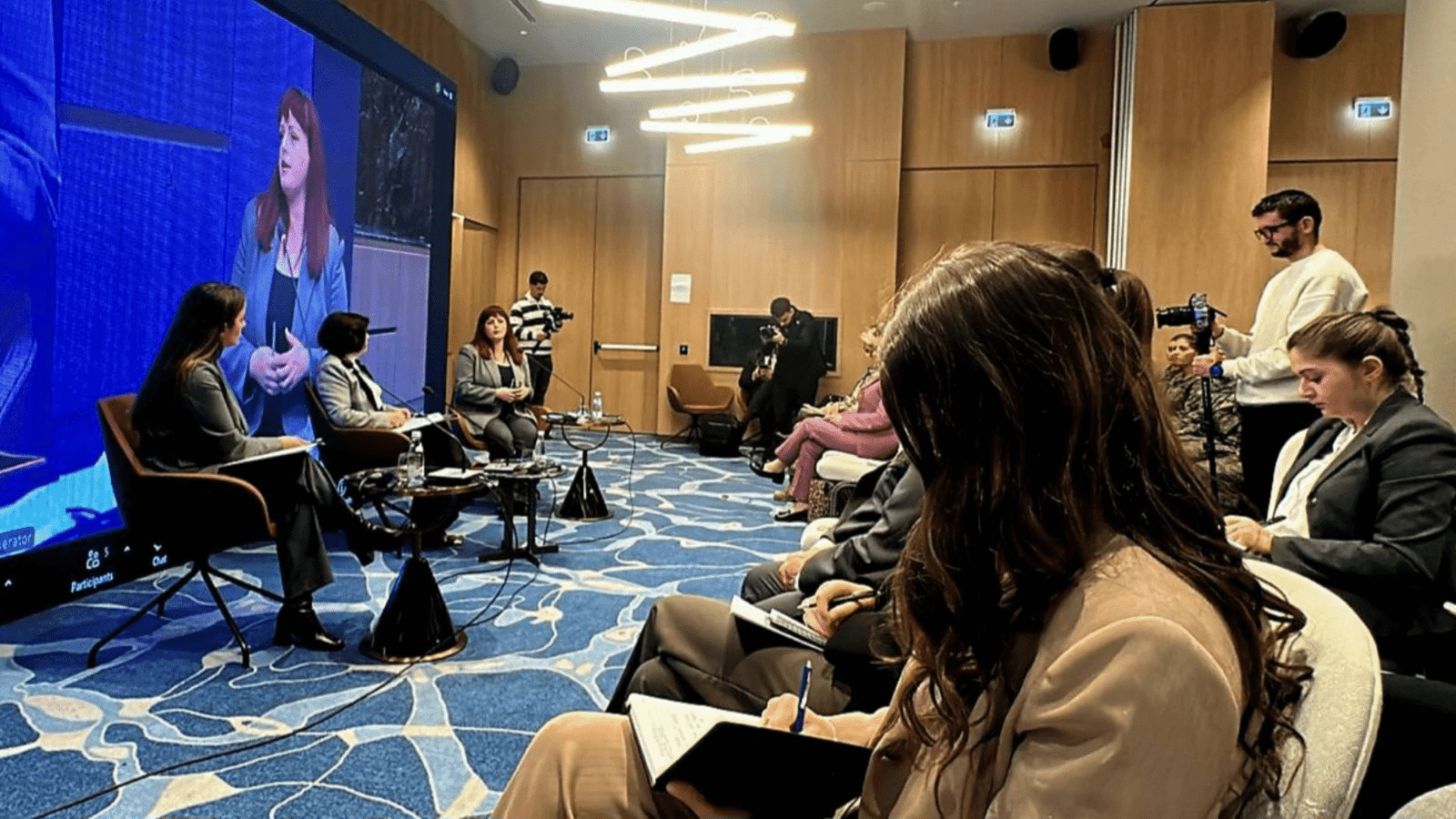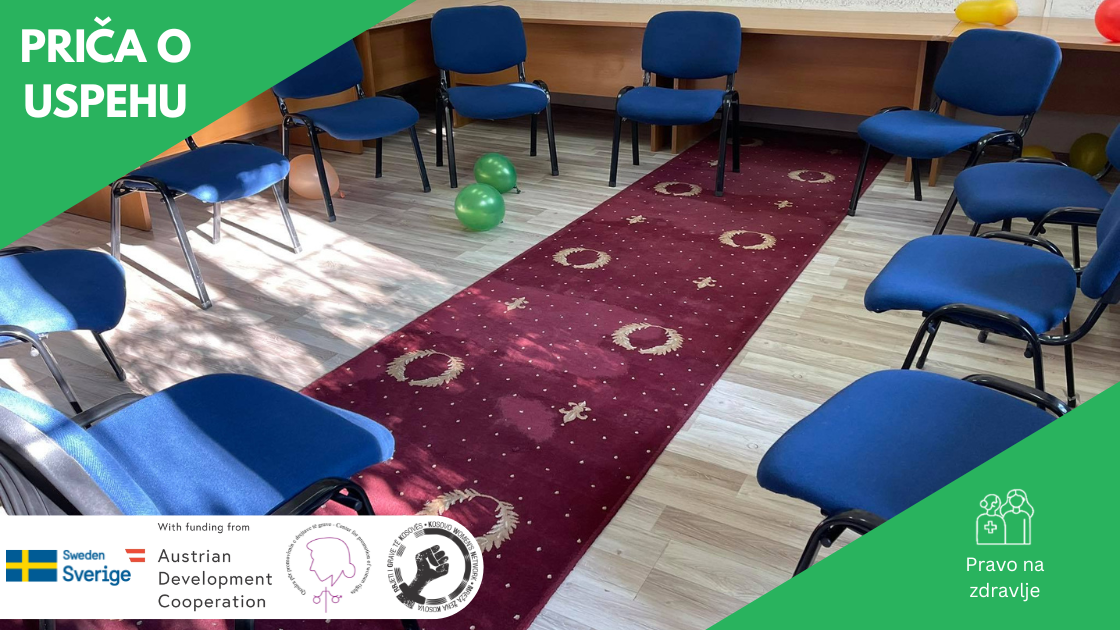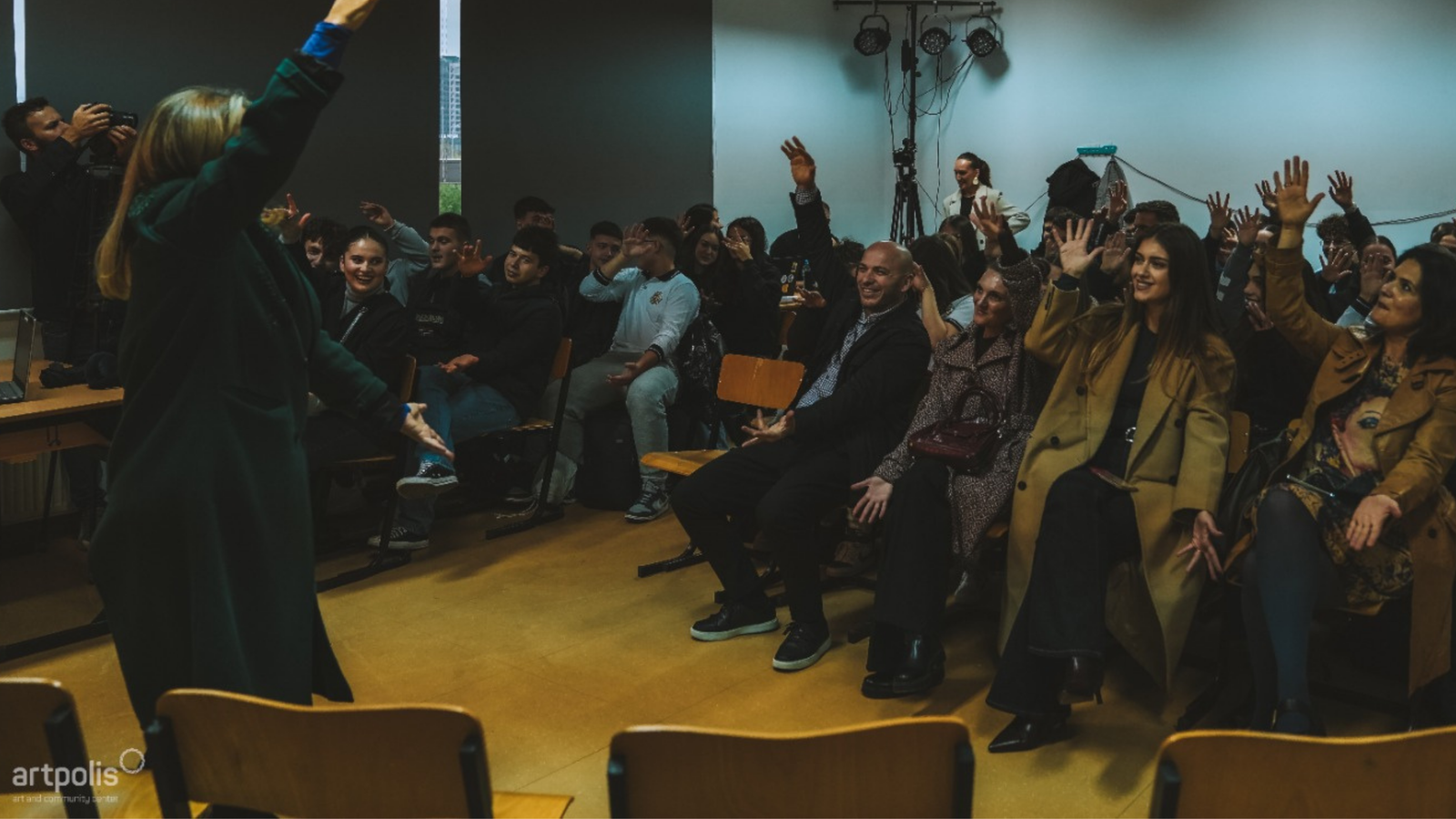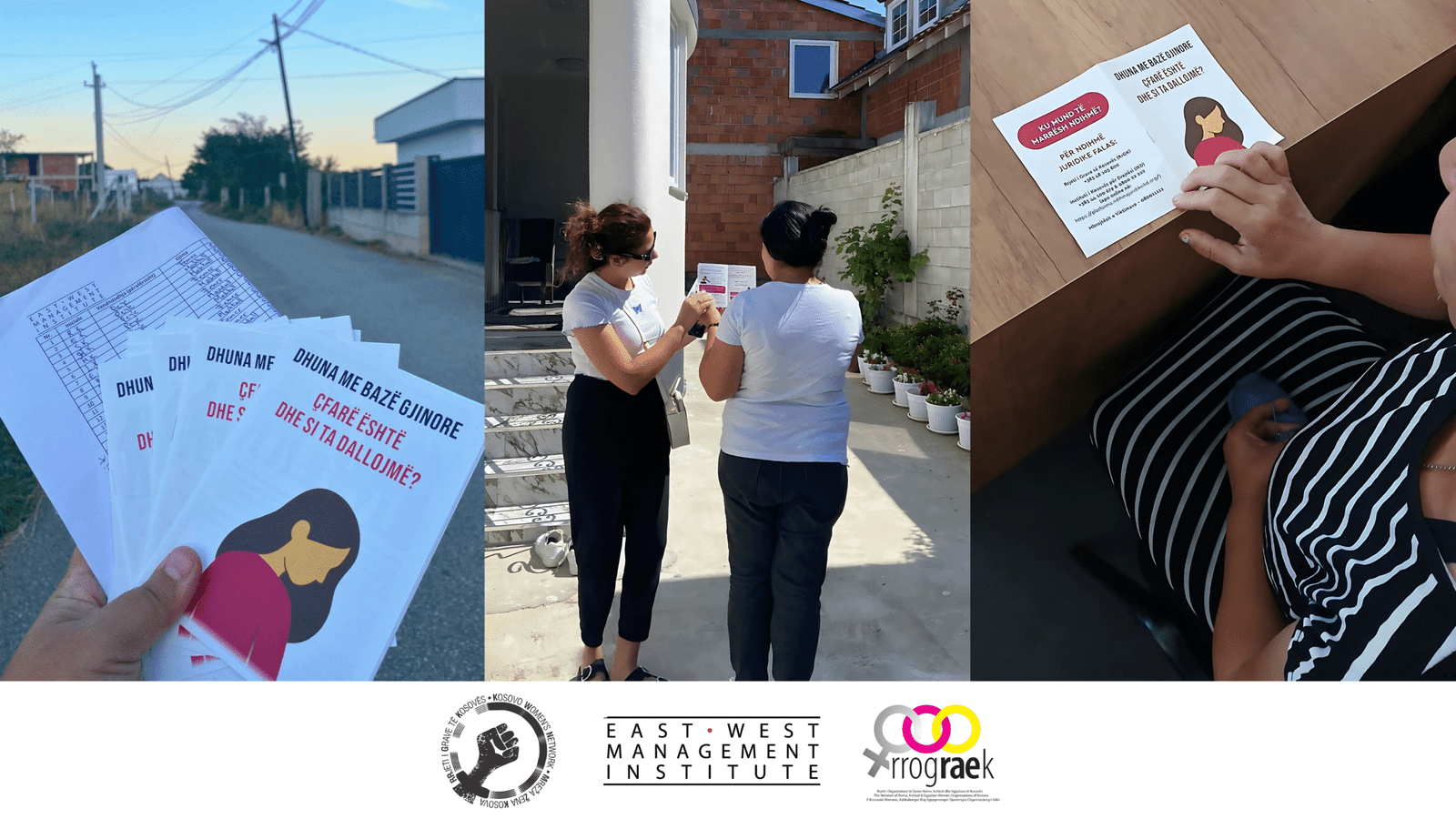The Gender Budget Watchdog Network (GBWN), together with the European Women’s Lobby (EWL) and the European Gender Budget Network (EGBN), organized the webinar “Security for Whom?” to reflect on the EU’s shifting priorities in its new Multiannual Financial Framework (MFF). Moderated by Nicole Farnsworth, Deputy Director and Lead Researcher at the Kosovo Women’s Network (KWN), the event gathered feminist academics, policy experts, and civil society actors to explore whether gender equality and gender budgeting can be meaningfully integrated into the EU’s growing defense and security expenditures.
Speakers raised alarm that the proposed MFF lacks gender equality objectives in most program regulations. As Elisabeth Klatzer (EGBN) warned, “The new MFF introduces flexibility and performance tracking, yet omits clear gender equality objectives leaving gender at high risk of being sidelined in funding.” Similarly, Anna Elomäki (Tampere University) emphasized that “Earmarked defense and security spending is set to surge to roughly €235 billion five times current levels while funds for people and social objectives shrink.”
The discussion revealed widespread concern that EU funding priorities are reinforcing traditional, male-dominated sectors while neglecting social and human security. Aurelie Buytaert (European Peacebuilding Liaison Office) cautioned that “If the EU deepens its role in defense, it must also strengthen governance aligning spending with arms-export criteria and gender strategies so we don’t undermine peacebuilding and the official development assistance” Hanna L. Mühlenhoff (University of Amsterdam) added that “In a climate of war-readiness, technical gender mainstreaming risks becoming a fig leaf; feminists should challenge the broader agenda of militarization itself.”
From an institutional perspective, Sari Kouvo (Gothenburg University) underlined that “Mainstreaming gender and human rights in EU security policy requires strategic hooks clear language, objectives and indicators that actually become actionable.” Meanwhile, Anastasia Mondeser (Gender Associations) reminded that “Defence is not a gender-free space; gender budgeting can be applied through annexes, targets and oversight if institutions commit to accountability.”
Addressing external financing, Laura Guthrie (CONCORD) warned that “Without binding targets like the 85% gender marker in external action, gender equality becomes optional and easily pushed aside by short-term interests.” Nela Porobić Isaković (Women’s International League for Peace and Freedom) argued that “Moving money into militarization crowds out social infrastructure and care; our priority must be human security, not arming a system that trades in death.” Concluding the discussion, Mary Collins (EWL) reminded participants that “Security must mean freedom from violence, equal participation and trust in public institutions budgets should reflect those values, and women must be at the table.”
Closing the event, Nicole Farnsworth emphasized the importance of building a joint feminist coalition to advocate collectively for peace, equality, and accountability across EU budgeting processes.
During the webinar, EGBN and GBWN announced a new policy brief, “Putting Gender Equality and Women’s Rights at the Core of the Next EU Budget (MFF 2028–2034),” which can be used by a diverse, multifaceted coalition to advocate jointly for a more gender-responsive MFF. You can read the policy brief here.
This webinar was supported by the Austrian Development Agency and Sweden through GBWN.
Watch the webinar here.







